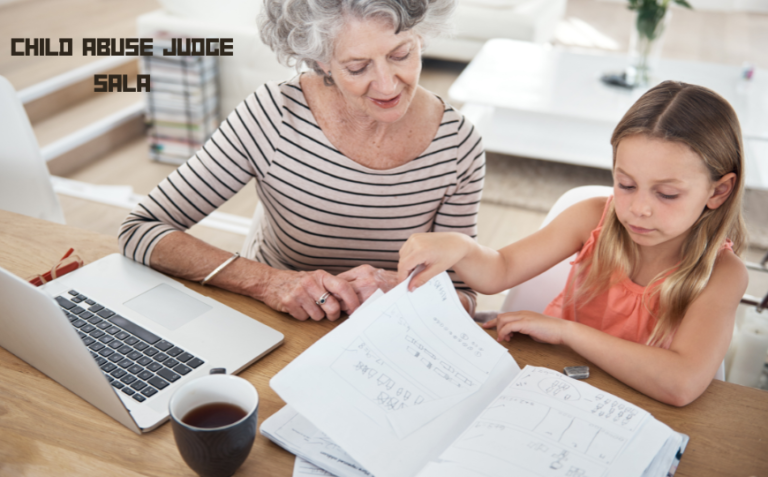In recent years, the judicial system in Michigan has faced increased scrutiny over its handling of sensitive cases, particularly those involving child abuse. One case that has drawn significant attention is that of Judge Cheyenne Sala, a figure in Michigan’s legal community known for presiding over high-stakes child abuse cases. This article explores the role of Judge Sala in Michigan’s court system, the importance of child abuse cases, and the broader implications of judicial decisions on the safety and well-being of children.
Who is Judge Cheyenne Sala?
Judge Cheyenne Sala has become a recognizable name in Michigan due to her involvement in the courtroom in cases dealing with child abuse, neglect, and family law. Sala’s reputation is tied to her unwavering commitment to ensuring the safety of children and upholding justice in cases where children are vulnerable. While little personal information about Judge Sala is available publicly, her work within the Michigan legal system speaks volumes about her role as an advocate for the rights of children.
As a judge, Sala has presided over many high-profile child abuse cases, ensuring that those who commit harm against children face the full consequences of their actions. Her decisions are often seen as part of Michigan’s broader effort to improve child welfare, both through the legal system and by raising awareness about the issue of child abuse.
The Importance of Child Abuse Cases in Michigan
Child abuse is an ever-present issue in Michigan, affecting countless children across the state. The Michigan Department of Health and Human Services (MDHHS) reports thousands of allegations of child abuse and neglect each year. These cases are often highly emotional and require a delicate balance between the need for protection and the due process rights of the accused.
Child abuse can take many forms—physical, emotional, sexual, or neglect. Regardless of the type of abuse, the legal system’s primary goal is to ensure that children are removed from harmful environments and placed in safe, nurturing homes. In cases where parents or caregivers are accused of abuse, the court plays a crucial role in determining the appropriate legal action, including whether a child should be placed into foster care, and what steps are necessary to provide the child with support and stability.
Judge Sala’s Role in Michigan’s Child Abuse Cases
Judge Sala’s involvement in Michigan’s child abuse cases highlights the critical role that the judiciary plays in protecting vulnerable children. Judges in these cases must assess complex, often heartbreaking situations to ensure that children’s rights are prioritized. Child abuse cases often involve emotional testimonies, difficult legal questions, and the need for expert evaluations, all of which require a judge with deep legal knowledge and empathy.
For Judge Sala, the approach to each case reflects a commitment to justice. By focusing on the well-being of the child, Sala’s rulings aim to serve as a deterrent to potential abusers and help ensure that those found guilty face the appropriate consequences. This can include prison sentences, mandatory rehabilitation, or restrictions placed on parental rights.
Key Challenges in Child Abuse Trials
While Judge Sala’s role is undeniably important, the cases she presides over are far from straightforward. Child abuse trials often face significant challenges that can complicate the pursuit of justice. Some of the key issues in child abuse cases include:
- Evidence and Testimonies: In many cases, children are unable to provide direct testimony due to their age or trauma, and this lack of direct evidence can make the case more difficult to prove. Medical records, expert testimonies, and witness statements often form the bulk of the evidence presented.
- Psychological Impact: The emotional and psychological toll of abuse on children is profound. These cases require judges to consider not just the immediate harm but the long-term effects of abuse on a child’s development and mental health.
- Family Dynamics: In some instances, the accused may be a close family member, complicating the child’s emotional ties and creating additional layers of distress for all parties involved.
Despite these challenges, Judge Sala’s rulings in child abuse cases aim to ensure that children’s voices are heard and that justice is served. This involves making difficult decisions, such as placing children in foster care or terminating parental rights, but it is necessary to ensure that children are given the best chance at a safe and healthy future.
The Impact of Judicial Decisions on Child Protection
The role of judges like Cheyenne Sala is critical not cheyenne michigan child abuse judge sala
only in individual cases but also in shaping broader trends in child protection. Michigan, like many states, has been working toward improving its child welfare system by increasing resources for children and families. Judges play a vital part in this reform, helping to implement policies and practices that better safeguard children from abuse and neglect.
Additionally, public awareness of judicial decisions can help draw attention to issues of child abuse and the importance of protecting vulnerable populations. Judge Sala’s high-profile rulings may encourage more people to come forward with allegations of abuse, knowing that the judicial system will take their concerns seriously.
Conclusion: The Continued Fight Against Child Abuse
Judge Cheyenne Sala’s work as a Michigan child abuse judge represents the tireless efforts of the judicial system to combat child abuse and ensure that children are protected from harm. Her role highlights the importance of a strong legal framework that not only punishes offenders but also supports the rehabilitation and care of children who have suffered abuse.
As Michigan continues to address child welfare challenges, judges like Sala are on the frontlines of ensuring that justice is served, children’s rights are upheld, and families are held accountable. The fight against child abuse is an ongoing battle, but with dedicated professionals in the legal system, there is hope for a safer future for all children in Michigan.
